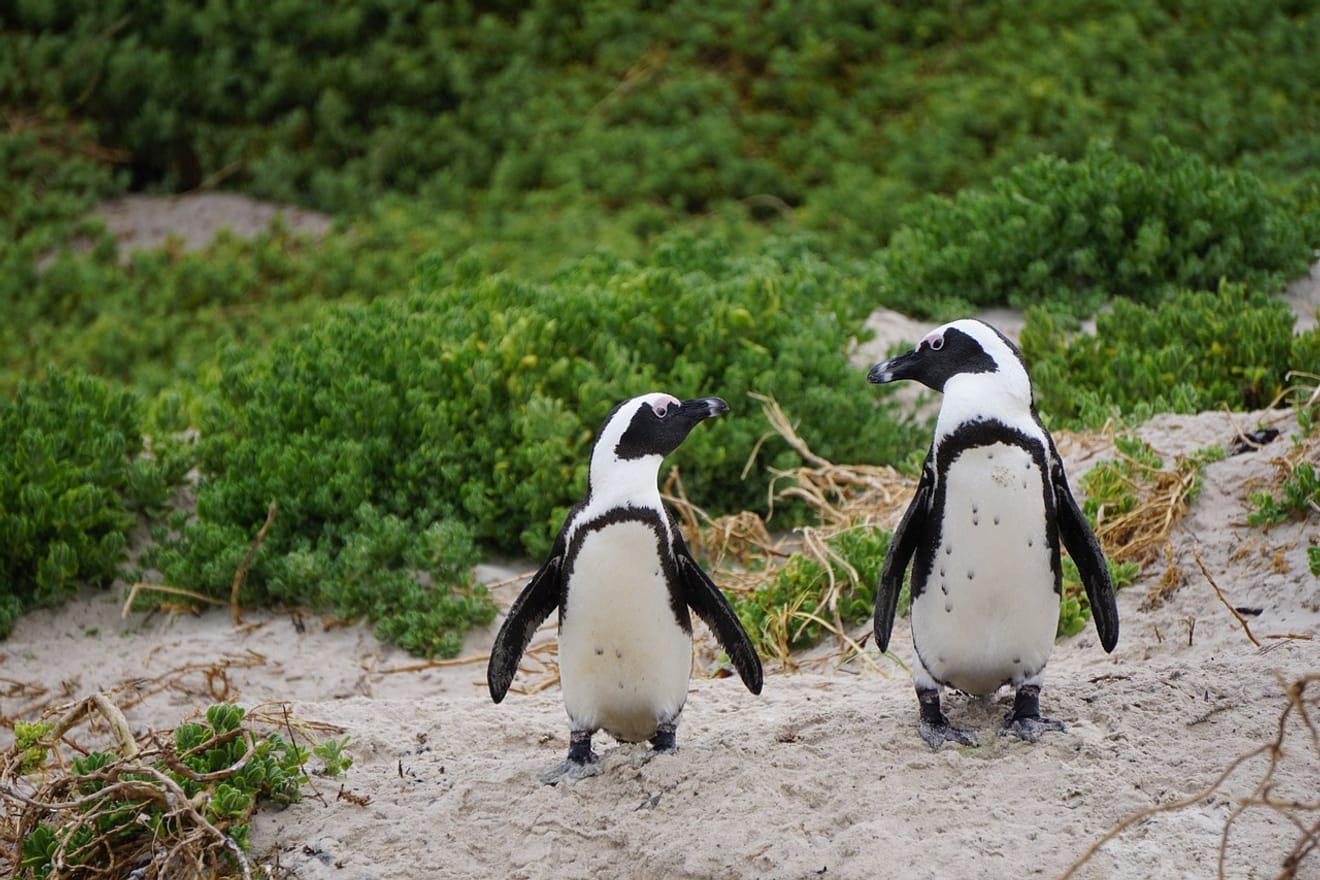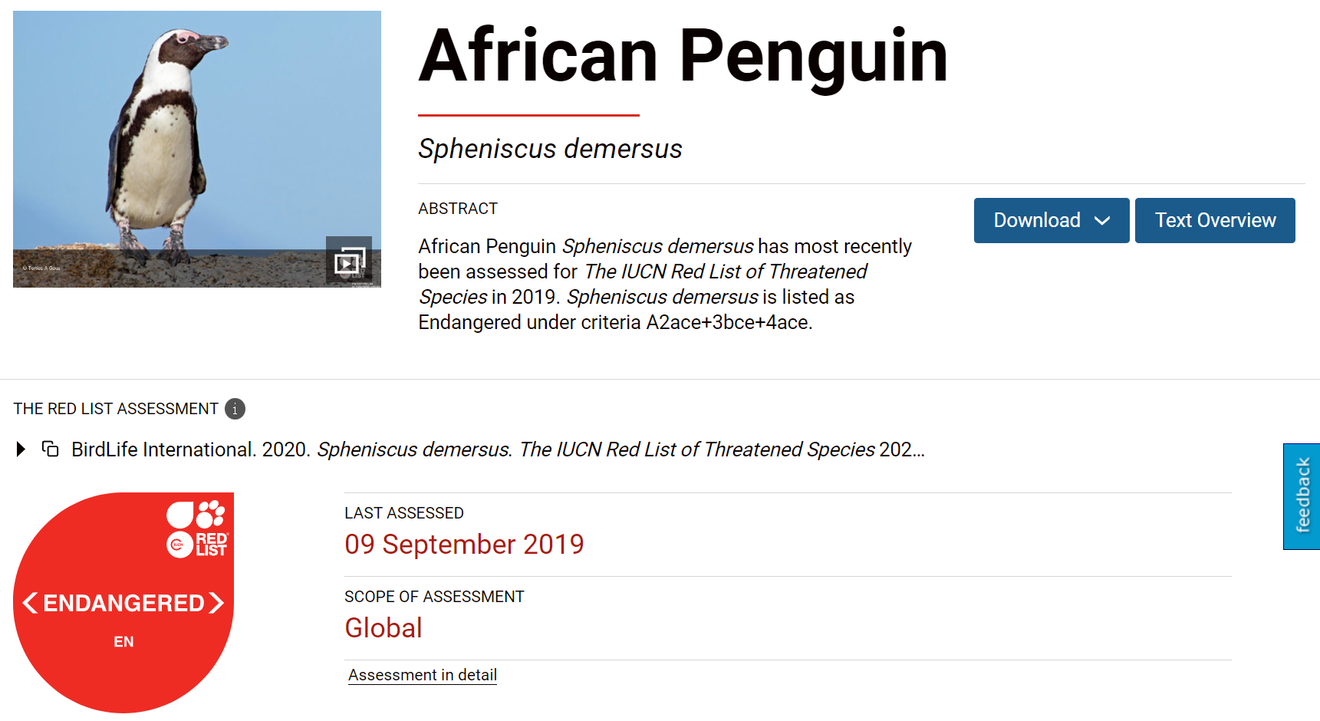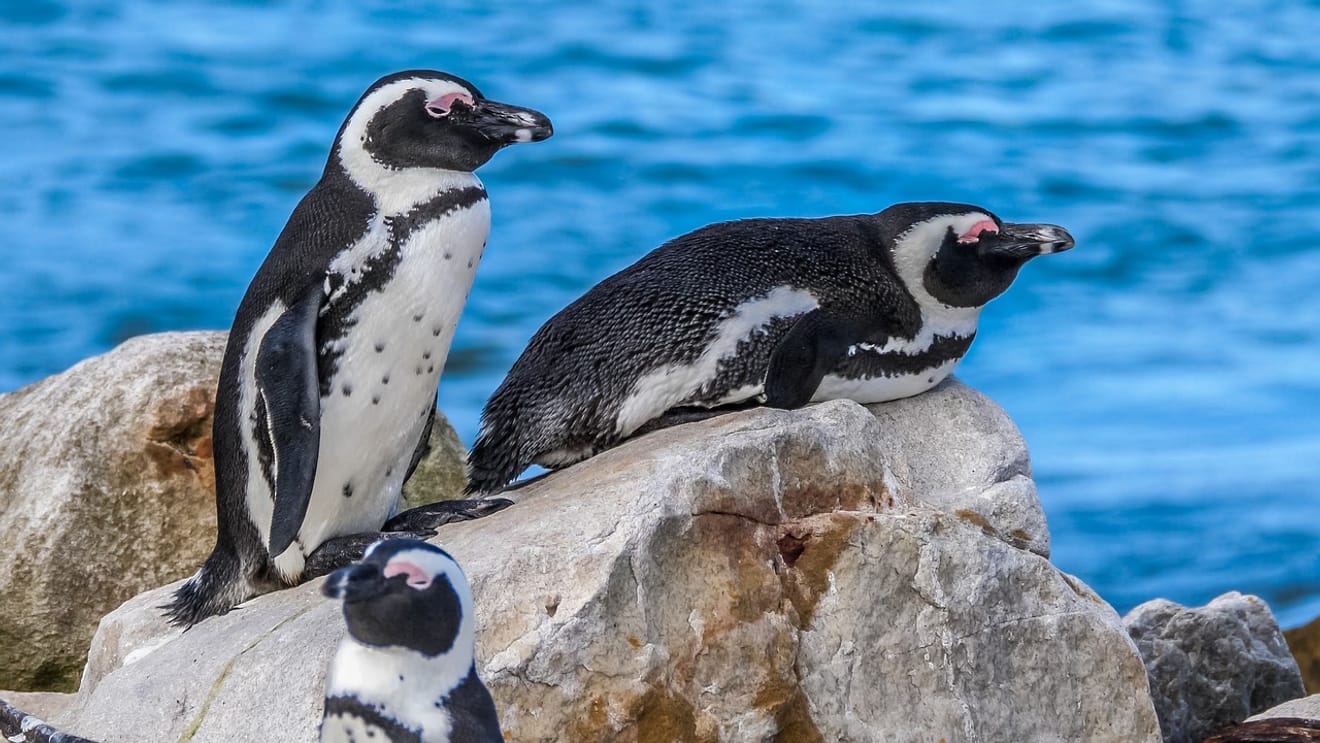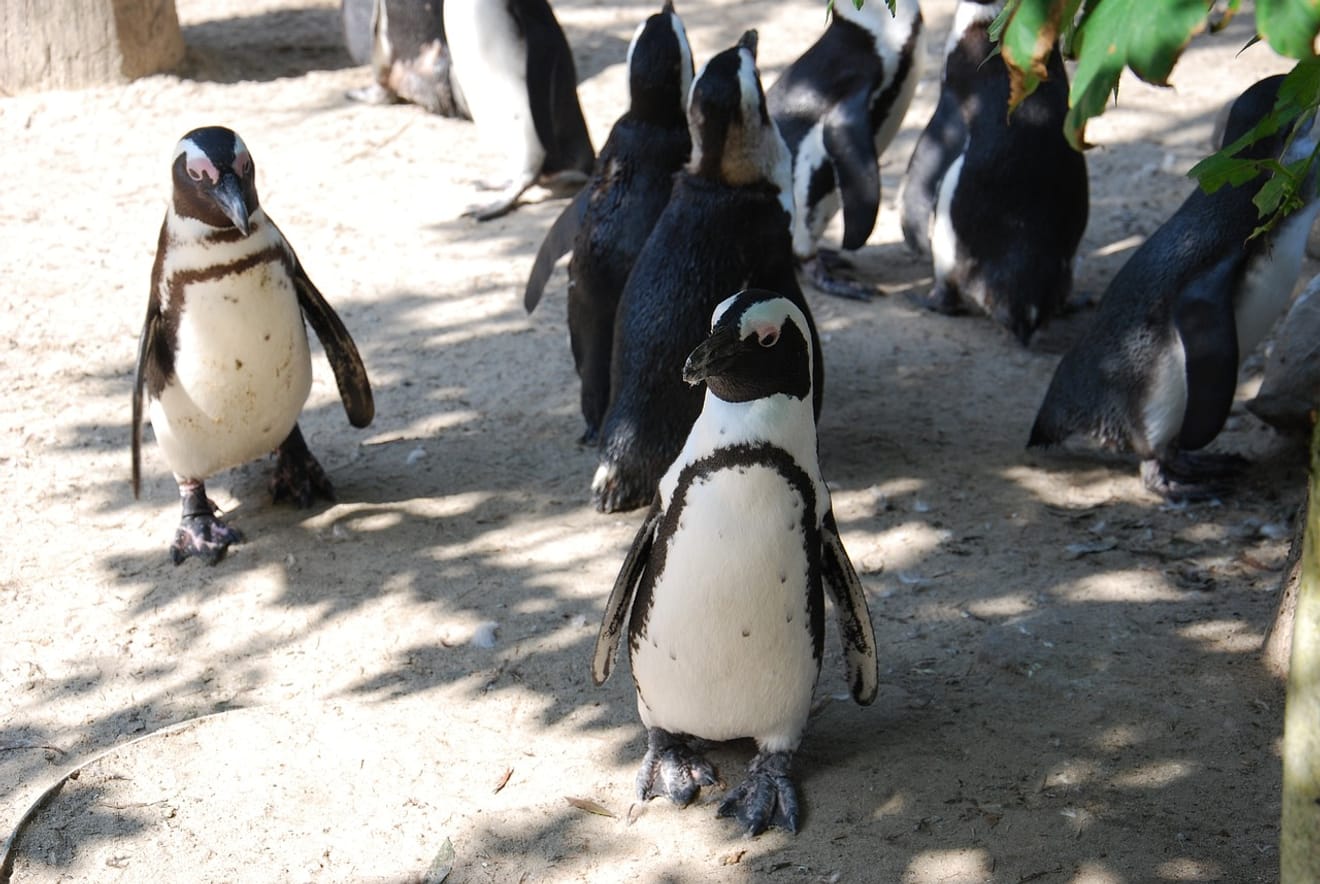Subject
- #Endangered Species
- #Boulders Beach
- #Threatened Species
- #African Penguin
- #Penguin
Created: 2024-01-30
Created: 2024-01-30 17:05
Penguins are animals that represent the cold Antarctic, right? But did you know that there are penguins in Africa too?

pixabay
The African penguin lives in South Africa and has a very small body, about 50cm tall. Its waddling walk makes it look like a baby who has just learned to walk. Living in a warm environment of 10-20℃, the African penguin is characterized by pink markings above its eyes. It is also called the 'Jackass penguin' because its cry sounds similar to a donkey's bray, with 'Jackass' being derived from 'jakkals,' the Afrikaans word for donkey.

IUCN
The African penguin is currently endangered. According to the International Union for Conservation of Nature, the African penguin is listed as Endangered (EN). It is estimated that only about 40,000 African penguins remain. This is a significant decrease compared to the 150,000 estimated in 2000. The population of African penguins continues to decline, and some experts believe that if this trend continues, the species could become extinct by 2035.

IUCN
As penguins that live in areas accessible to humans, African penguins have been significantly impacted by human activities. In the early 20th century, the collection of African penguin eggs was widespread, contributing to the decline in their population. Of course, egg collection is now prohibited by law.
Persistent oil spills in the ocean have also affected their population decline. As African penguins inhabit coastal areas, they are vulnerable to the negative impacts of oil spills that wash ashore.

pixabay
Climate change is another factor threatening African penguins. Rising sea temperatures have made it difficult for them to find food in the ocean. African penguins detect low water temperatures and high chlorophyll levels to locate plankton and fish, but this process is hindered by rising temperatures. Now, they have to travel longer distances to find food. The change in fish species due to rising water temperatures also interferes with their foraging activities.
Humans have caused various other negative impacts on African penguins. In 2022, a report revealed that noise from large ships in the ocean has contributed to a sharp decline in penguin numbers. The noise interferes with their foraging activities. Moreover, incidents of hunting African penguins still occur.

pixabay
Boulders Beach in South Africa is home to African penguins. It's a popular tourist destination, but to protect the endangered African penguins, visitors are not allowed to get too close to them. Boulders Beach makes great efforts to ensure that penguins can thrive in their natural environment. It's reassuring to see that there are good habitats like Boulders Beach that protect endangered species and educate tourists about the importance of protecting the African penguins.
Comments0